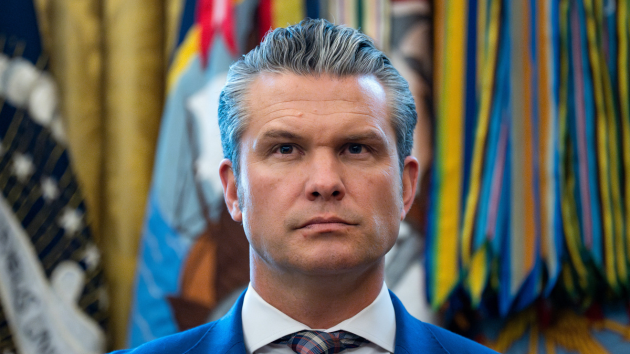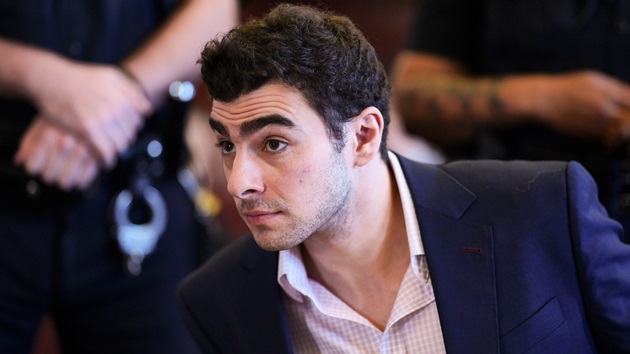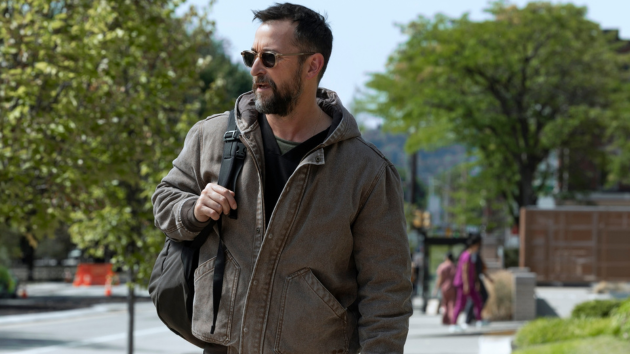Jimmy Carter leaves behind a global public health work legacy
Written by ABC Audio. All rights reserved. on December 31, 2024
(WASHINGTON) — As world leaders mourn the death of former President Jimmy Carter and remark on his political and policy legacy, doctors are remembering his efforts to prevent disease, and his legacy in furthering global public health.
The 39th president spent five decades working to eradicate a parasitic disease, helped organize a major-drug donation program, and made advancements addressing the mental health crisis in the U.S.
Dr. Julie Jacobson, currently a managing partner of the nonprofit Bridges to Development, helped to provide funding for the Carter Center’s work in the Americas, Nigeria and Ethiopia while she worked for the Bill & Melinda Gates Foundation for over a decade.
“He was hugely influential, I think particularly for the diseases that most of the world doesn’t appreciate even exist,” Jacobson told ABC News of Jimmy Carter’s work. “He was a true champion for the neglected tropical diseases, which are some of the most common infections of people who live with the least resources. And he found these diseases and then really wanted to do something about them, and used his voice, his influence, his passion, to continue to push forward where others were really not interested.”
Near-eradication of Guinea worm disease
Following his loss to Ronald Reagan in the 1980 presidential election, Carter founded the Carter Center in 1982, a non-profit organization that “seeks to prevent and resolve conflicts, enhance freedom and democracy, and improve health,” according to the Center’s website.
Among the organization’s many efforts, the Carter Center helped spearhead a successful international campaign with the goal of eradicating dracunculiasis, also known as Guinea worm disease, a parasitic infection caused by consuming contaminated drinking water.
Water from ponds or other stagnant bodies of water can contain tiny crustaceans commonly known as water fleas, which in turn can be infected with Guinea worm larvae, according to the Centers for Disease Control and Prevention (CDC).
About one year after infecting a human host, the Guinea worm creates a blister on the skin and emerges from it, which can cause burning pain, fever and swelling, according to the CDC and the World Health Organization.
“Nobody else wanted to take it on,” Jimmy Carter told ABC News’ George Stephanopoulos during a 2015 interview on “Good Morning America”. “So, I decided to take it on.”
In 1986, Guinea worm disease afflicted 3.5 million people every year in 21 African and Asian countries. Disease incidence has since been reduced by 99.99%, to just 14 “provisional” human cases in 2023, according to the Carter Center.
Jacobson said that success is even more remarkable because there are no vaccines available to prevent Guinea worm disease and no drugs to treat it. Tracking Guinea worm disease, according to Jacobson, involves following possible cases for a year to determine if they are infected, checking to see if infected humans have any infected water sources near them, and monitoring the community as a whole.
“To think that you could eradicate a disease without any tools is really still just a crazy idea, but he did it with perseverance and working with people in the grassroots within communities and putting together teams of people to go and work with people in those communities and empower the communities,” Jacobson said.
The Carter Center says if efforts are successful, Guinea worm disease could become the second human disease in history to be completely eradicated, after smallpox, and the first to be done without the use of a vaccine or medicine.
Carter told ABC News during the 2015 interview that eradicating the disease entirely was his goal: “I think this is going to be a great achievement for, not for me, but for the people that have been afflicted and for the entire world to see diseases like this eradicated.”
Mass drug distribution for river blindness
The Carter Center also works to fight other preventable diseases, including the parasitic infections schistosomiasis and lymphatic filariasis – more commonly known as snail fever and elephantiasis, respectively – as well as trachoma, which is one of the world’s leading causes of preventable blindness. It’s also working with the governments of Haiti and the Dominican Republic to eliminate lymphatic filariasis and malaria from the island of Hispaniola, which both countries share and which is “the last reservoir in the Caribbean for both diseases,” according to the Carter Center.
Carter and his organization also played a part in organizing a major drug-donation program to help eliminate onchocerciasis, also known as river blindness, which is transmitted to human through repeated bites of infected blackflies, according to the CDC.
Pharmaceutical company Merck & Co. had been implementing field studies in Africa which showed that the drug ivermectin was effective at treating river blindness in humans. The Carter Center partnered with Merck to mass-distribute ivermectin, brand name Mectizan, “as much as needed for as long as needed” in Africa and Latin America. To date, the Carter Center has assisted in distributing more than 500 million treatments of Mectizan, according to Merck.
In 1995, Carter negotiated a two-month cease-fire in Sudan to allow health care workers there to more safely help eradicate Guinea worm disease, prevent river blindness, and vaccinate children against polio.
“When we have known solutions, it is ethical to make sure they’re available to the people who need it most,” Dr. Usha Ramakrishnan, chair of the Department of Global Health at Emory University’s Rollins School of Public Health, told ABC News. “And that’s where we were with river blindness. There was a treatment, but improving access to medications, making it affordable, reaching the people they need was very much along the lines of the work [the Carter Center] was doing.”
Addressing mental health
Carter was also committed to tackling mental health issues. During his presidency, he created the Presidential Commission on Mental Health, which recommended a national plan to care for people with chronic mental illness.
Although it was never adopted as policy by the Reagan administration, the plan’s recommended strategies were adopted by some mental health advocacy groups to “make gains in the 1980s,” according to one study.
Carter also signed into law the Mental Health Systems Act of 1980, which provided funding to community mental health centers.
After his presidency, Carter and former first lady Rosalynn Carter continued working to improve access to mental health.
Ramakrishnan said the Carters’ work helped to reduce some of the stigma associated with mental health.
“There continues to be a lot of stigma, but they truly got it out [in] the conversation and mainstreaming mental health as an important aspect of health and well-being,” Ramakrishnan said. “There’s still a lot of challenges, and there are many capable people that they have mentored and trained who are carrying that mantle forward.”
Copyright © 2024, ABC Audio. All rights reserved.





